Bibi (“Lady of the House”) opened in May 2021, part of the growing JKS restaurant group, which includes Gymkhana, Trishna, Hoppers and Lyles. The head chef is Chetan Sharma, who previously was group development chef for four years at JKS. Prior to that he worked in hospitality consultancy, as well as a development chef at Mugaritz, and has an unusual background for a chef in that he studied for a doctorate in Physics from Oxford. There was a tasting menu for £75 in addition to a la carte, featuring some fairly traditional Indian dishes like chicken tikka and cauliflower malai alongside exotica such as raw scallops with Indian lemonade, and Achari British wagyu, which you are unlikely to encounter in your local high street curry house. There is an emphasis on lightness, so for example there is romali roti but no naans or parathas.
The venue is a Georgian building that was previously a coffee shop, and the dining room is decorated with polished wood and with a tiled floor. It is quite bijou, seating just 33 covers inside with an additional 16 on the terrace. The lighting was remarkably gloomy at our table, hence the matching photos. Short of bringing along a portable lighting rig, there is no way to take decent food photos in this kind of poorly designed lighting, whatever camera you have (except perhaps an infrared one).
The wine list had 54 labels and ranged in price from £32 to £115, with a median price of £64 and an average markup to retail price of 3.1 times, which is almost moderate by Mayfair standards these days. While 43% of the list was from France, fully 13% was from South Africa, and there were selections from Portugal, Argentina and New Zealand too. Sample references were Les Deux Moulins Sauvignon Blanc 2020 at £32 for a bottle that you can find in the high street for £12, Distant Noise Cabernet Sauvignon 2019 at £50 compared to its retail price of £17, and Sybille Kuntz Riesling Spatlese Trocken 2015 at £80 for a wine that will set you back £31 in the high street. For those with the means there was Rully Dureuil-Janthial 2018 at £100 compared to its retail price of £31, and Côte-Rôtie La Germine David & Benjamin Duclaux 2016 at £115 for a wine whose current market value is £49. Alternatively, corkage was £35 a bottle.
Wookey Hole cheese popadoms promised to be more exotic than they tasted, as frankly there was next to no discernible cheese flavour. Bhel with pear granita (£9) was excellent, the assorted heritage puffed grains light, the acidity of the pear granita complementing them nicely and there being a pleasant mix of sweet and sour elements (14/20). Morecambe bay shrimp vada (£8) was rather disappointing, barely tasting of shrimp at all, and seemingly just a deep-fried cylinder of a mix of shrimp and cod (11/20). Orkney scallop with Indian lemonade (£18) was much more intriguing, the raw scallop of high quality and the lemonade an unusual but effective pairing to the sweetness of the shellfish (14/20). Raw belted Galloway beef pepper fry with fermented Tellicherry peppercorns (£14) was a lot less interesting than it sounds, having quite limited flavour. Although the beef itself was pleasant enough, the dish lacked enough spicy kick for me (12/20).
Sharmaji’s Lahore chicken with cashew and yoghurt whey (£12) was pleasant, the chicken quite tender (13/20), more successful than the chukh masala tikka (£10), which was just bland. This is especially odd for a dish that advertises itself as being chillied – “chukh” is a chilli paste from the state of Himachal Pradesh (12/20). Aged Swaledale lamb chop (£22) was cooked pink and served with Kashmiri walnut doon chetin, which is basically a walnut chutney. The meat was fine but the dish was curiously lacking in spice, so it just tasted much like a regular lamb chop (12/20). On the side, okra with peanut and sesame (£9) avoided the sliminess that so often afflicts okra (13/20), while cauliflower malai with cashews and paneer (£12) was pleasant enough (13/20). Ghee dhal was on the watery side (12/20).
The only bread offered is romali roti, (£3) which happens to be my favourite Indian bread, and this was an excellent version. It is very thin, tossed in the air and folded quickly over a hot hemisphere. Some versions can be a bit flaky but this was spot on. To be honest it was the best thing that we ate all night, and we had some additional rotis as they were so good (15/20). For dessert we tried ice lollies of rum and munakka raisin kulfi, along with saffron and white chocolate kulfi, which were fine (13/20). Passionfruit and fig leaf tartlet (£9) had reasonable pastry though for me more passion fruit flavour would have been useful (13/20).
Service was our waitress from Krakow was charming. I was being treated by a friend so did not see the bill, but if you shared a modest bottle of wine then a typical cost per person might be around £90, as all those dishes that you are encouraged to order soon add up. I have to say that this was quite a mixed meal, with the excellent scallop starter and the lovely rotis as highlights, but also some quite ordinary dishes, and a seeming reluctance to use even moderate levels of spice when surely vibrant spicing is the main point of Indian dishes? We are in London here, where people are entirely used to Indian dishes, so it seems odd to be to be so timid with spicing. Bibi was busy and so it is obviously finding an audience, but for me the notionally interesting menu promised a lot more than it delivered.

















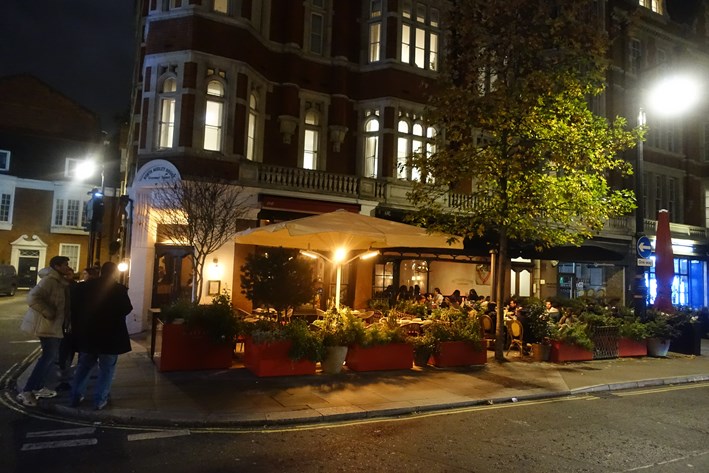

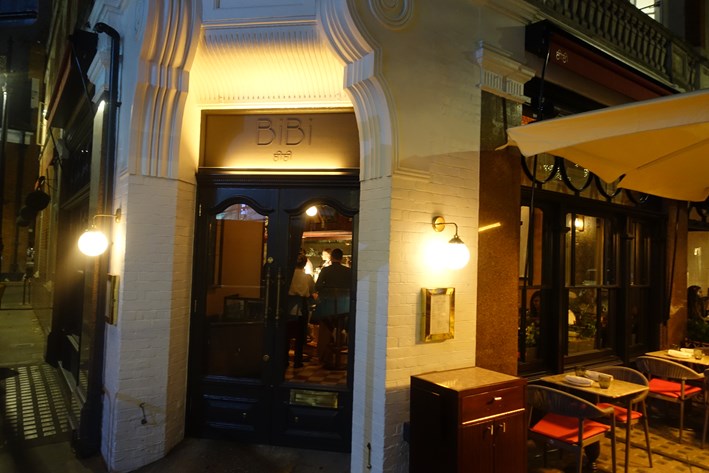
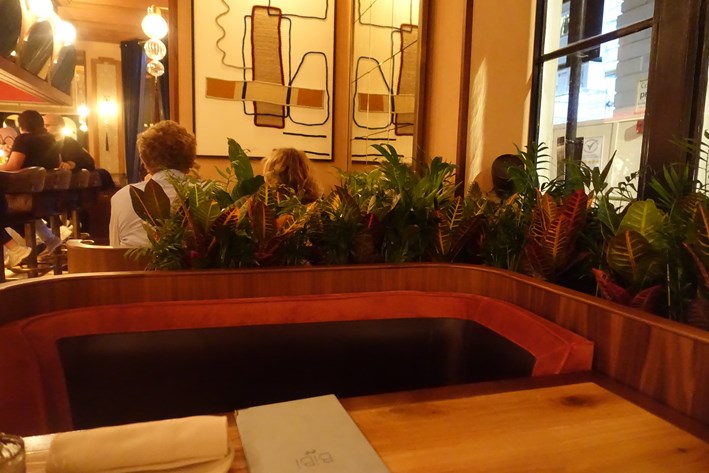
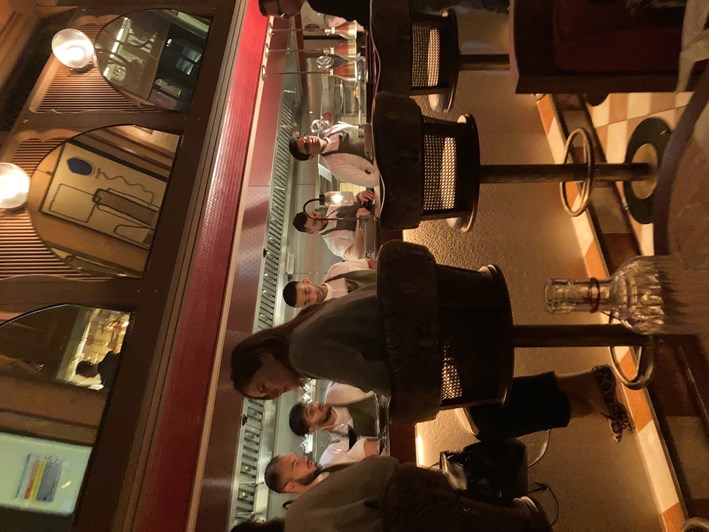
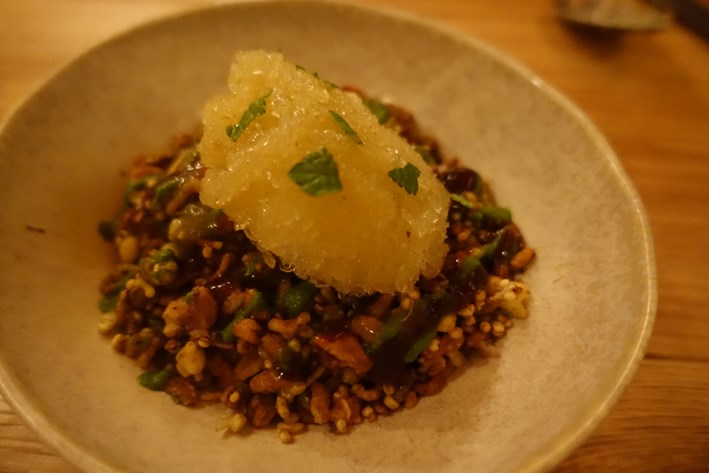
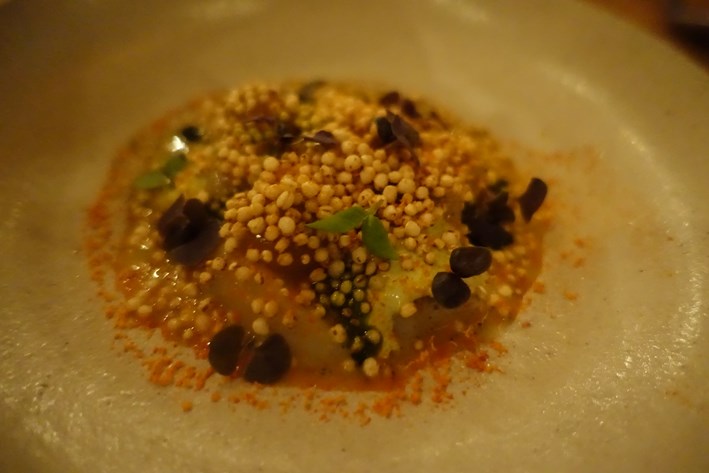
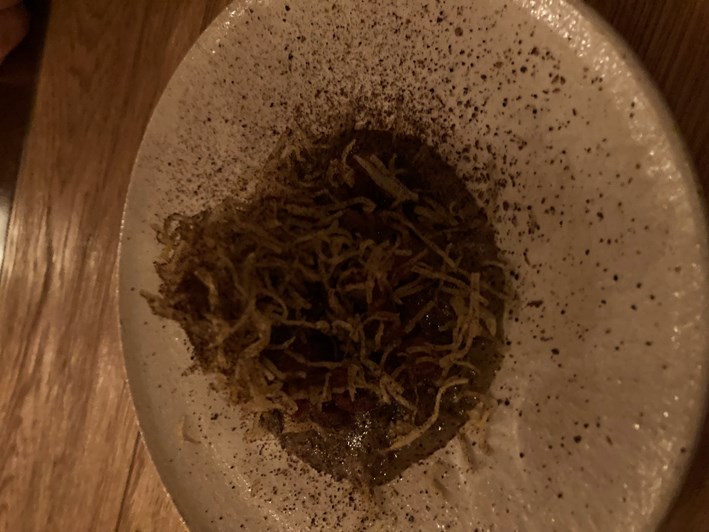
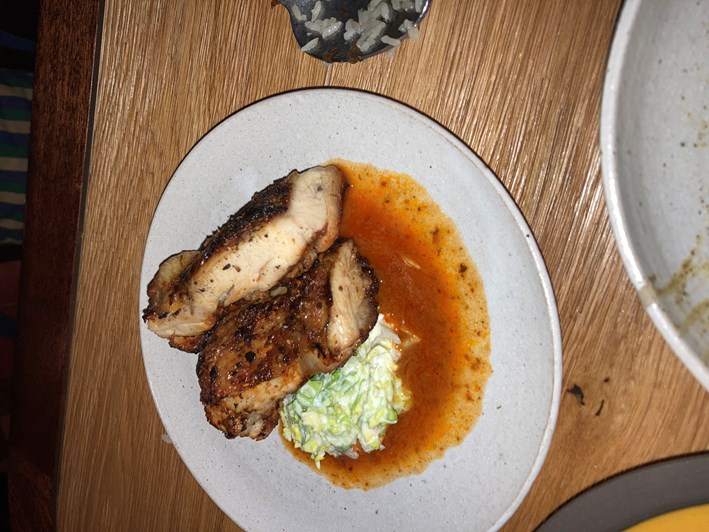
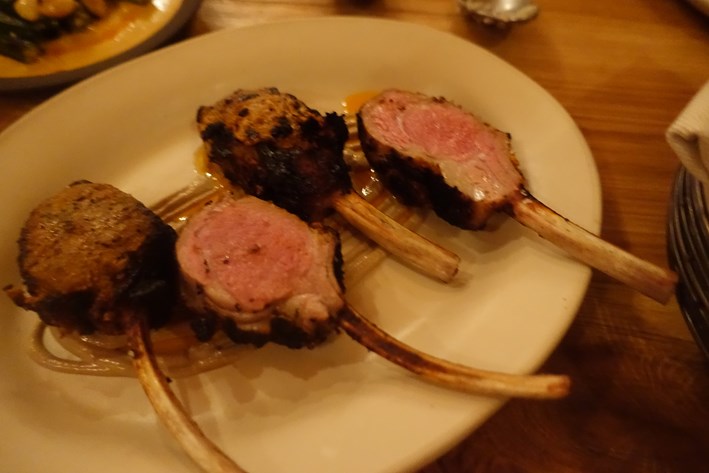
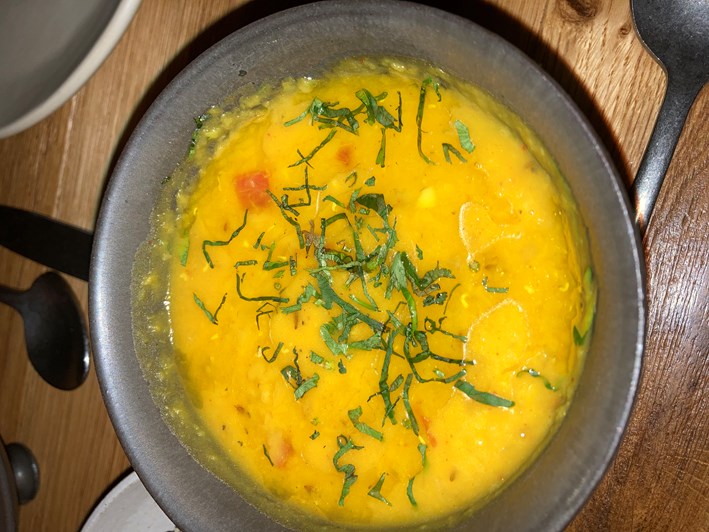
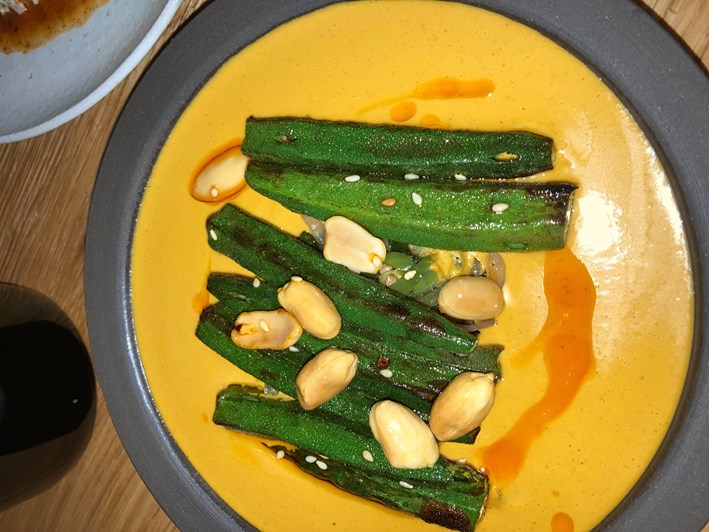
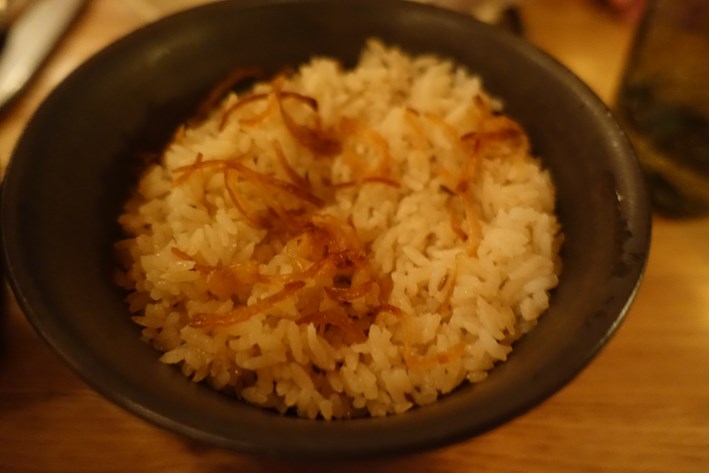
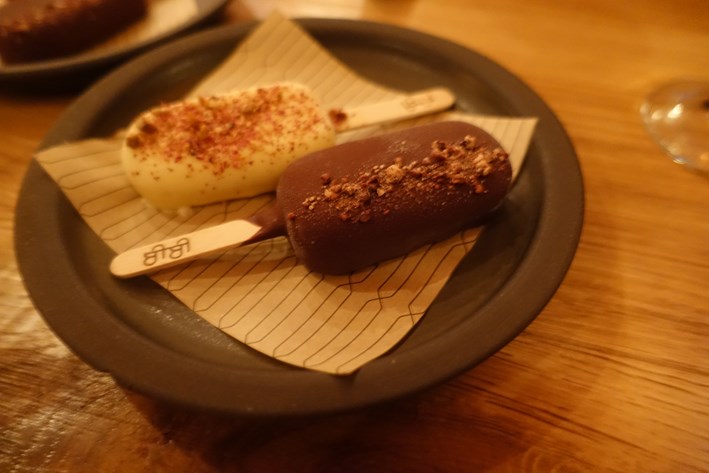
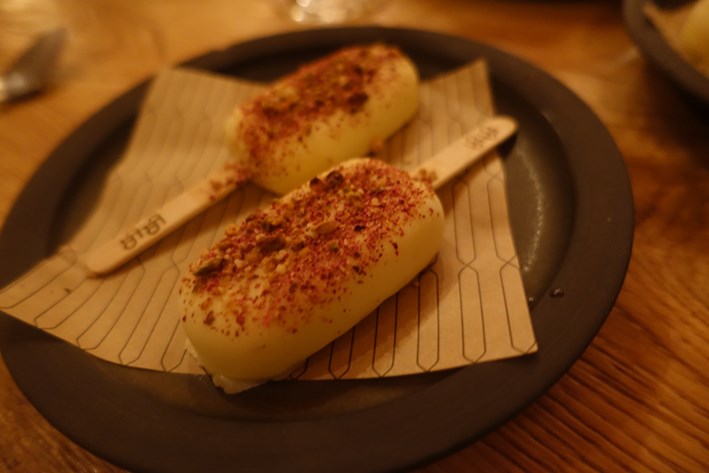
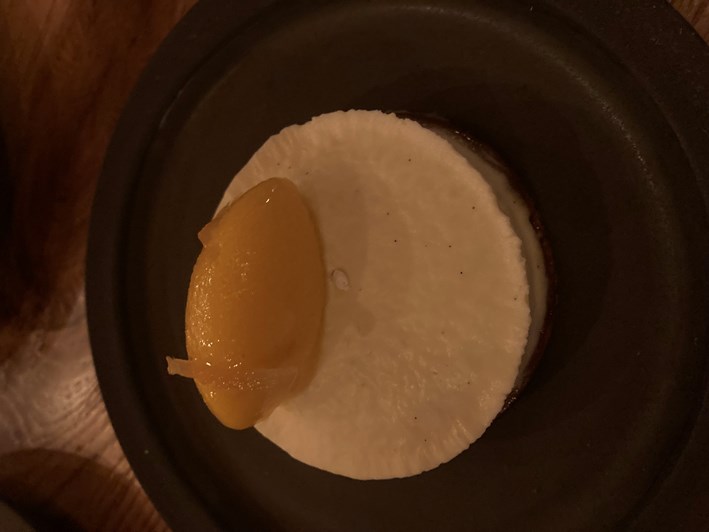

Add a comment
Thank you for submitting your comment, this will be checked and added to the website very soon.
User comments